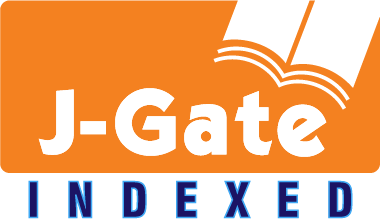Society 5.0 and Public Services: An assessment on Turkey
DOI:
https://doi.org/10.26809/joa.6.4.05Keywords:
Society 5.0, Public Service, Turkey, TechnologyAbstract
The rapid change in information and communication technologies creates a serious social transformation. In the early 2000s, tools such as computers, internet and mobile phones were almost a luxury, but today they have become an integral part of our lives and brought many new technological developments behind them. Now, many advanced computing tools such as artificial intelligence, robots, internet of things, cloud technologies and big data analysis have started to become widespread in every sector from economy to health, from transportation to education. While technology is advancing rapidly in this direction, increasing natural disasters, terrorist incidents, economic crises and social problems have brought to the agenda that the purpose and way of using technology should be changed based on these problems. In this context, a new technological and social transformation target called Society 5.0 has been put forward by Japan. Aiming to create a sustainable society perspective shaped on the basis of digital technologies, Society 5.0 represents a new human-centered social transformation phase. Society 5.0 aims to create a society where society and technology cooperate on behalf of society, and where technology does not pose a threat to society. It is stated that this transformation, which will affect all sectors, is expected to be effective especially in public services and this is a necessity. In this study, the theoretical framework of the concept of Society 5.0 has been put forward in detail, and it has been tried to reveal how decisive it is in the public sector all over the world, what are the deficiencies and what needs to be corrected. In the light of all these developments, it has been emphasized what the situation and current problems are in the transition to Society 5.0 in Turkey, which can be said to be in the prime stage of industry 4.0, and what kind of road map should be followed in this direction. It was aimed to shed light on the subject by offering some suggestions.
Downloads
References
AKBAŞ, İ. & ÖZTUNA, B. (2019) Akıllı Kent Ekseninde Üretimin Yeniden Tanımlanması. 10. Uluslararası Sivil Toplum Kuruluşları Kongresi, Bandırma, 1-3 Kasım 2019, 419-431.
AKPINAR, M. (2018). Endüstri 4.0’dan Toplum 5.0’a Geçerken Sağlık Bilişiminin Geleceği. Sağlık-Der Bilişim Komisyonu https://docplayer.biz.tr/105279557-Endustri-4-0-dan-toplum-5-0-gecerken-saglik-bilisiminin-gelecegi.html (Erişim Tarihi: 02.08.2021)
ATABAY, S. (2021), Endüstri 4.0’dan Toplum 5.0’a. Hürriyet, 5 Nisan, https://www.hurriyet.com.tr/egitim/endustri-4-0dan-toplum-5-0a-41780170 (Erişim Tarihi: 21.08.2021)
AUFFRAY, C., BALLING, R. & ZANETTI, G. (2016), Making Sense of Big Data in Health Research: Towards an EU Action Plan. Genome Medicine, 8(71), 1-13.
AVANER, T. & FEDAİ, R. (2019). Türk Kamu Yönetiminde Ofis Sistemi: E-Devlet Uygulamalarından Dijital Dönüşüm Ofisine. Amme İdaresi Dergisi, 52(2), Haziran, 149-172.
AVŞAR, İ. İ. (2018). Endüstri 4.0 Yorumu: Toplum 5.0. Al-Farabi 2nd International Congress on Social Sciences: The Book of Full Text, 6-8 Nisan 2018, 510-514.
BİLİM, SANAYİ VE TEKNOLOJİ BAKANLIĞI. (2019). Türkiye’nin Sanayi Devimi. “Dijital Türkiye” Yol haritası. https://www.gmka.gov.tr/dokumanlar/yayinlar/2023_Dijital-Turkiye-Yol-Haritasi.pdf (Erişim Tarihi: 24.08.2021).
BKMYBS, (2017). Bütünleşik Kamu Mali Yönetim Bilişim Sistemi Politika Belgesi ve Eylem Planı, http://www.gsb.gov.tr/public/edit/files/strateji/ButunlesikKamuMaliYonetimBilisimSistemi.pdf (Erişim Tarihi: 14.08.2021)
BOOTLE, R. (2019). The AI Economy: Work, Wealth and Welfare in the Age of the Robot. Boston, MA/USA: Nicholas Brealey Publishing.
BÜYÜKGÖZE, S. & DERELİ, E. (2019). Toplum 5.0 ve Dijital Sağlık. IV. Uluslararası Bilimsel ve Mesleki Çalışmalar Kongresi-Fen ve Sağlık Tam Metin Bildiri Kitabı, 7-10 Kasım 2019, 1-5.
COUNCIL FOR SCIENCE, TECHNOLOGY AND INNOVATION (2015). Report on The 5th Science and Technology Basic Plan. Cabinet Office, Government of Japan https://www8.cao.go.jp/cstp/kihonkeikaku/5basicplan_en.pdf (Erişim Tarihi: 14.08.2021)
DEGUCHI, A. (2020). Society 5.0 and its Application to American Smart Cities. https://www.americancityandcounty.com/2020/06/10/society-5-0-and-its-application-to-american-smart-cities/ (Erişim Tarihi: 01.08.2021).
DOMBROWSKI, U. & WAGNER, T. (2014). Mental Strain as Field of Action in the 4th Industrial Revolution. Procedia CIRP, 17, 100-105.
EGGERS, W. D. & MACMILLAN, P. (2015). Kamu 2020: Kamunun Geleceğine Yolculuk. İstanbul: Deloitte
ELEKTRONİK KAMU BİLGİ YÖNETİM SİSTEMİ (KAYSİS) (2021). Kaysis Hakkında. https://www.kaysis.gov.tr/Kaysis_Hakkinda (Erişim Tarihi: 24.08.2021).
EREN, Z. (2020). Toplum 5.0 ve Dijital Dünyada Toplumsal Dönüşüm ve Eğitim 5.0. Akçay, D. & Efe, E. (Editörler), Dijital Dönüşüm ve Süreçler içinde, İstanbul: İstanbul Gelişim Üniversitesi Yayınları, No: 74, ISBN: 978-605-4827-69-5, 169-206.
FERREIRA, C.M. & SERPA, S. (2018). Society 5.0 and Social Development: Contributions to a Discussion. Management and Organizational Studies, 5(4), 26-31. 6
FORESTI, R., ROSSI, S., MAGNANI, M., LO BIANCO, C. G. & DELMONTO, N. (2019). Smart Society and Artificial Intelligence: Big Data Scheduling and the Global Standard Method Applied to Smart Maintenance, Engineering, 1-12.
FUJII, T., GUO, T. & KAMOSHIDA, A. (2018). A Consideration of Service Strategy of Japanese Electric Manufacturers to Realize Super Smart Society (Society 5.0). International Conference on Knowledge Management in Organizations, Springer, Cham., 634-645.
FUKUYAMA, M. (2018). Society 5.0: Aiming for a New Human-Centered Society. Japan Spotlight, 27, 47-50.
GOVERNMENT OF UK (2018). Industrial Strategy Artificial Intelligence Sector Deal, www.gov.uk/beis (Erişim Tarihi: 11.08.2021).
HAAGA, H. (2019). The Influence of ICT on The Accommodation Industry in The Upcoming Industry 5.0. The Unpublished Postgraduate Thesis.
HARAYAMA, Y. (2017). Society 5.0: Aiming for a New Human-centered Society. Collaborative Creation through Global R&D Open Innovation for Creating the Future, Hitachi Review. 66(6), 8- 13.
İ-SCOOP (2018). From Industry 4.0 to Society 5.0: The Big Societal Transformation Plan of Japan. https://www.i-scoop.eu/industry-4-0/society-5-0/ (Erişim Tarihi: 23.08.2021)
İSO (2020). İSO, “Türkiye’nin 500 Büyük Sanayi Kuruluşu 2018” Araştırmasını Açıkladı. http://www.iso.org.tr/haberler/diger-haberler/iso-turkiyenin-500-buyuk-sanayi--kurulusu-2018-arastirmasini-acikladi/ (Erişim Tarihi: 28.08.2021)
JAPAN CABINET OFFICE. (2020). Society 5.0. https://www8.cao.go.jp/cstp/english/society5_0/index.html (Erişim Tarihi: 29.08.2021).
KEIDANREN. (2016). Toward Realization of The New Economy and Society. Reform of The Economy and Society by The Deepening of “Society 5.0”. April 19. http://www.keidanren.or.jp/en/policy/2016/029_outline.pdf (Erişim Tarihi: 21.07.2021)
KEIDANREN. (2018). Society 5.0 – Co Creating the Future. Keidanren Policy & Action. https://www.keidanren.or.jp/en/policy/2018/095_proposal.pdf (Erişim Tarihi: 04.09.2021).
KELLELİOĞLU, M. (2018). Toplum Enerjisini Nereye Harcıyor? Toplum 5.0’dan Ne Kadar Haberdarız? https://www.mehmettekelioglu.com/2018/11/toplum-enerjisini-nereye-harciyor-toplum-5-0dan-ne-kadarhaberdariz/ (Erişim Tarihi: 15.08.2021).
KENT, E. (2019). Endüstri 4.0’dan Toplum 5.0’a. Türkiye’nin Endüstri 4.0 Platformu, https://www.endustri40.com/endustri-4-0dan-toplum-5-0a/ (Erişim tarihi: 01.08.2021).
KÖSEOĞLU, Ö. & DEMİRCİ, Y. (2018). Akıllı Şehirler ve Yerel Sorunların Çözümünde Yenilikçi Teknolojilerin Kullanımı. International Journal of Political Studies. 4(2), 40-57.
LOM, M., PRIBYL, O. & SVITEK, M. (2016). Industry 4.0 as a Part of Smart Cities. Smart Cities Symposium, Prague, 1-6.
LUCKE J. V. (2016). Smart Government – The Potential of Intelligent Networking in Government and Public Administration. Conference Proceedings Book for E-Democracy and Open Government (CeDEM), 137-144.
MAZUR, O. (2019). Taxing the Robots. Pepperdine Law Review. 46(277), 277-330.
OECD (2002), Reviews of Regulatory Reform: Turkey 2002. Crucial Support For Economic Recovery, Paris.
OKAN GÖKTEN, P. (2018). Karanlıkta Üretim: Yeni Çağda Maliyetin Kapsamı. Muhasebe Bilim Dünyası Dergisi, 20(4), 880-897.
PETROV O. (2014). Open Data as a Key Enabler of Smart Government Session 3: Leveraging Emerging Technologies, 17th National Conference on e-Governance Kochi, India, https://nceg.gov.in/sites/default/files/nceg2014/presentation/day1_session3_World_Bank_Oleg_Petrov.pdf (Erişim Tarihi: 18.07.201)
PRIME MINISTER OF JAPAN AND HIS CABINET (2017). Address by Prime Minister Shinzo Abe at CeBIT Welcome Night. Speeches and Statements by the Prime Minister, March 19, https://japan.kantei.go.jp/97_abe/statement/201703/1221682_11573.html (Erişim Tarihi: 10.09.2021).
SAIF OBAID ALHEFEITI, F. (2018). Society 5.0: A human-centered society that balances economic advancement with the resolution of social problems by a system that highly integrates cyberspace and physical space. Unpublished Postgraduate Thesis. The British University in Dubai.
SARACEL, N. & AKSOY, I. (2020). Toplum 5.0: Süper Akıllı Toplum. Social Sciences Research Journal, 9(2), 26-34.
SERTAÇ ARI, E. (2021). Süper Akıllı Toplum: Toplum 5.0. Dokuz Eylül Üniversitesi Sosyal Bilimler Enstitüsü Dergisi, 23(1), 455-479.
SHIROISHI, Y., UCHIYAMA, K. & SUZUKI, N. (2018). Society 5.0: For Human Security and Well-Being. IEEE Computer Society, November, 73-78.
T.C. BORNOVA BELEDİYESİ (2019). En İyi Vizyon Projesi Dijital Sınıf ve Altın Bilezik. https://bornova.bel.tr/2019/11/08/en-iyi-vizyon-projesi-dijital-sinif-ve-altin-bilezik/ (Erişim Tarihi: 11.07.2021).
T.C. ÇEVRE VE ŞEHİRCİLİK BAKANLIĞI (2019). 2020-2023 Ulusal Akıllı Şehirler Stratejisi ve Eylem Planı. https://www.akillisehirler.gov.tr/ (Erişim Tarihi: 12.07.2021).
TAMER, H. Y. & ÖVGÜN, B. (2020). Yapay Zeka Bağlamında Dijital Dönüşüm Ofisi. Ankara Üniversitesi SBF Dergisi, 75(2), 775-803.
THE GOVERNMENT OF JAPAN. (2019). Realizing Society 5.0., https://www.japan.go.jp/abenomics/_userdata/abenomics/pdf/society_5.0.pdf (Accessed Date: 10.07.2021).
TINHOLT, D., ENZERINK, S., STRÄTER, W., HAUTVAST, P. & CARRARA, W. (2017). Unleashing the potential of Artificial Intelligence in the Public Sector. Capgemini Consulting Report, www.capgemini-consulting.com, (Erişim Tarihi: 23.08.2021).
TURAN, D. (2020). Ekonomik ve Mali Boyutlarıyla Robot Vergisi. Anadolu Üniversitesi Sosyal Bilimler Dergisi, 20(1), 57-70.
TÜBİTAK. (2016). Yeni Sanayi Devrimi Akıllı Üretim Sistemleri Teknoloji Yol Haritası. https://www.tubitak.gov.tr/sites/default/files/akilli_uretim_sistemleri_tyh_v27aralik2016.pdf (Erişim Tarihi: 24.08.2021).
TÜRK EĞİTİM DERNEĞİ. (2020). Toplum 5.0: İnsan Merkezli Toplum. 22 Mayıs, 1-11, https://tedmem.org/download/toplum-5-0-insan-merkezli-toplum?wpdmdl=3362&refresh=613fb9d85972d1631566296 (Erişim Tarihi: 20.08.2021).
UÇMA UYSAL, T. & ALDEMİR, C. (2018). Dijital Kamu Mali Yönetim Sistemi ve Blok Zinciri Teknolojisi. Muhasebe ve Vergi Uygulamaları Dergisi, 11(3), 505-522.
YILDIZ Y. (2019). Robot Vergisi: Yeni Nesil Bir Maliye Politikası Aracı. Maliye Dergisi, 177 (Temmuz-Aralık), 299-329.
Downloads
Published
How to Cite
Issue
Section
License
Copyright (c) 2021 Holistence Publications

This work is licensed under a Creative Commons Attribution 4.0 International License.
When the article is accepted for publication in the Journal of Awareness, authors transfer all copyright in the article to the Rating Academy Ar-Ge Yazılım Yayıncılık Eğitim Danışmanlık ve Organizasyon Ticaret Ltd. Şti.The authors reserve all proprietary right other than copyright, such as patent rights.
Everyone who is listed as an author in this article should have made a substantial, direct, intellectual contribution to the work and should take public responsibility for it.
This paper contains works that have not previously published or not under consideration for publication in other journals.











